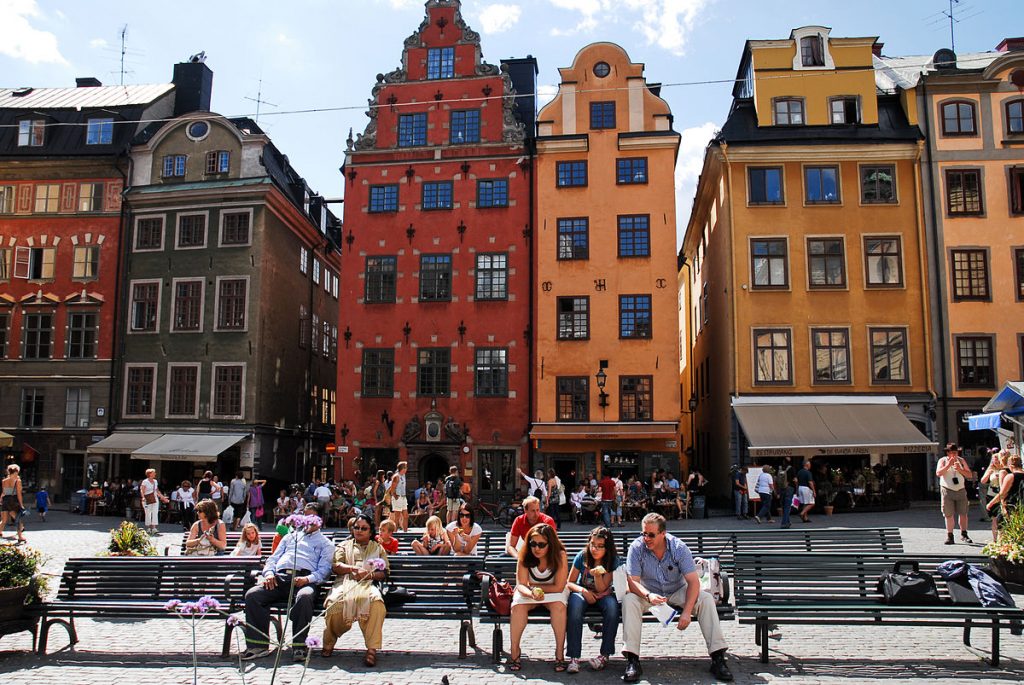The idea is that unlike lockdown, the less strict measure can be sustained for a long time without tanking the economy or making people rebel.
At least a quarter of Swedes will have had coronavirus by the start of May, according to one of its public health industries. Maybe up to half. Which isn’t that surprising, considering shops, bars, restaurants and other public spaces remain open. True, lots of people are voluntarily working from home and nine in ten Swedes say they're practicing social distancing when out and about. The government has banned visits to care homes and groupings of more than 50 people. But in general life in Sweden is carrying on with much more normality than in most other European countries.
Does this mean that Sweden is headed for a ton of coronavirus deaths? Its government and population don't think so. Their belief is that lockdown - which puts incredible stress on both the economy and people's wellbeing - is not sustainable, and that countries who are too strict with it will simply see a big wave of Covid-19 cases whenever restrictions are lifted. Sweden's state epidemiologist (disease specialist) has also repeatedly emphasized that most cases of coronavirus are not life-threatening. Deaths have plateaued in the capital, Stockholm, and the healthcare service is not overwhelmed with cases. The open-for-business strategy is also popular with most Swedes.
But some people think that Sweden is being complacent. It is in the top twenty countries for the number of Covid-19 cases, and its coronavirus death rate is higher as a percentage of the population than in other Nordic countries with stricter lockdowns. Certain groups, including older people in care homes and immigrants living in multigenerational households, are significantly more likely to die. Plenty of Swedes agree with an prominent epidemiologist who told the BBC that "there are too many people dying" and more should be done to stop it.
What this debate boils down to is that responding to a pandemic requires trade offs. Commanding almost everyone to stay at home almost all of the time limits the spread of coronavirus, but it has huge costs. Lockdowns around the world have resulted in such ills as mass unemployment, soaring cases of mental health problems and a big increase in domestic violence. For some people, including those currently protesting in America, this ‘cure’ for coronavirus is worse than the disease. Others disagree and say nothing is more important than saving lifes. Some then rebut that it’s not so clear cut - coronavirus is particularly deadly to those who are already old and ill, so some of the people who die from it would have died within a short period anyway (academics suggest about two-thirds).
How Sweden is judged for its response to the pandemic will partly depend on the number of coronavirus cases and deaths it ultimately has. But it will also depend on who is doing the judging - and what their personal values are.
Read our explainer on: the Vale of Life.

